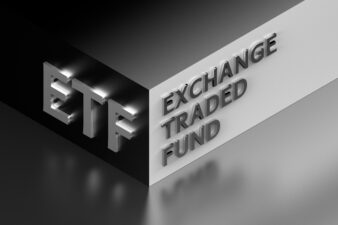Pay peanuts, get monkeys. At least that’s the old saying.
According to the Canadian Centre for Policy Alternatives’s (CCPA) new report on executive compensation, the average CEO in the Top 100 made $9.5 million in 2015—193 times the average industrial wage in Canada.
Call it greed, call it a corporate governance issue, call it whatever you want, but as long as investors turn a blind eye to the reckless behaviour of public company boards, excessive CEO compensation is going to carry on unabated.
Care to know which CEOs actually earn their pay? I do.
In order to find out, I took the CCPA’s list of the Top 100 CEOs in terms of pay in 2015, worked my way from the bottom up, and found the three CEOs who delivered the best value in 2015.
To qualify, a CEO must have been in the top job for at least five years with total 2015 compensation no more than 1% of its 2015 revenue; the company’s stock must have increased by at least five percentage points more than the S&P/TSX Composite Total Return Index on an annualized basis over the past five years; and its top and bottom lines must also have increased over the five-year period.
May the search begin.
Metro, Inc. (TSX:MRU)
CEO: Eric La Flèche since April 2008, 100th highest-paid CEO in Canada
2015 total compensation: $3.7 million
Five-year annual total return: 18.4%
“Steady as she goes” is the best way of describing the Quebec retailer which, under La Flèche, has seen its revenues and operating income grow by 12.3% and 27.6%, respectively. While not spectacular, it’s definitely a stock you can hold for the long term without experiencing too many hiccups.
Remember, Metro had just as much to gain from buying Safeway’s western Canadian stores but decided the cost was too high. Empire Company Limited subsequently took $2.8 billion in goodwill impairments on the acquisition.
Sometimes it’s the deal you don’t make that defines your legacy as CEO. In Metro’s case, La Flèche saved shareholders a whole lot of pain. That’s got to be worth $3.7 million—doesn’t it?
Great Canadian Gaming Corp. (TSX:GC)
CEO: Rod Baker since October 2011, 83rd highest-paid CEO in Canada
2015 total compensation: $4.1 million
Five-year annual total return: 24.4%
The Vancouver-based company operates gaming, entertainment and hospitality facilities in British Columbia, Ontario, New Brunswick, Nova Scotia, and Washington State. Great Canadian has 20 gaming properties, which consist of 12 casinos, including a four-diamond resort hotel in Richmond, British Columbia and a four-star hotel in Moncton, New Brunswick, four horse-racetrack casinos, three community gaming centres, and one commercial bingo hall.
In the first three quarters of fiscal 2016, it generated adjusted EBITDA of $161.7 million on $422.3 million in revenue—an increase of 19.3% over the same nine months a year earlier.
Acquisitions have been a big part of its growth in recent quarters. It acquired Casino New Brunswick in Moncton in October 2015 and a bundle of assets in Ontario, including the Shorelines Casino Thousand Islands in January 2016. It’s new Belleville, Ontario casino is set to open later in January.
In October, I wrote about Great Canadian’s ability to generate free cash flow. At the time its free cash yield was 9.2%; today, it’s still a very attractive 8.9%.
Cineplex Inc. (TSX:CGX)
CEO: Ellis Jacob since October 2003, 76th highest-paid CEO in Canada
2015 total compensation: $4.5 million
Five-year annual total return: 17.8%
Making money in the movie exhibition business is almost entirely dependent on the quality of the product being made in Hollywood and elsewhere. When the movies aren’t any good, the number of people who go to the theatres drops, causing a natural decline in revenues and profits.
That’s what happened in the second quarter of 2016. Attendance dropped year over year by 14.4%, or 2.8 million people; net income dropped by 71.7% as a result. In the third quarter, attendance was only down 1% year over year, and yet net income increased by 21.3%.
Ellis Jacob has been transforming Cineplex in recent years from a movie theatre chain to an entertainment company, and that’s having a positive effect on the bottom line. If there’s a CEO who deserves $4.5 million in annual compensation, Jacob would have to be it.







